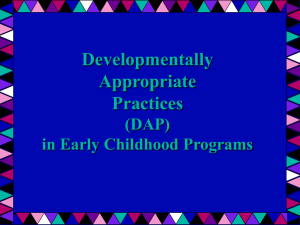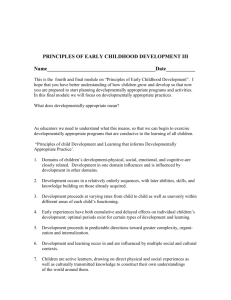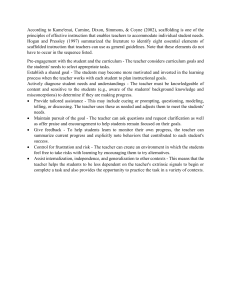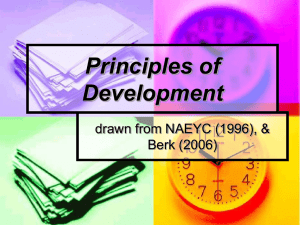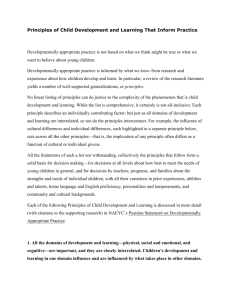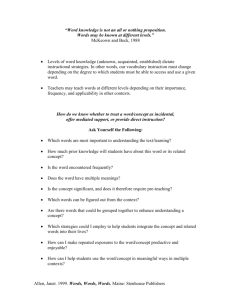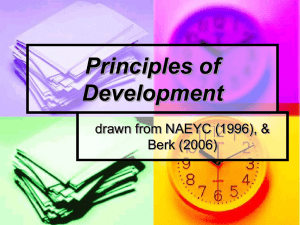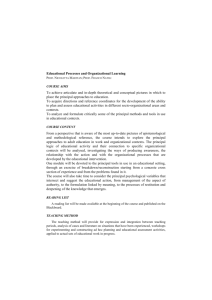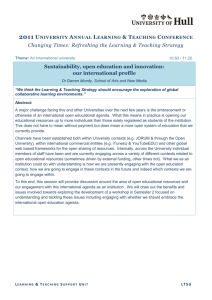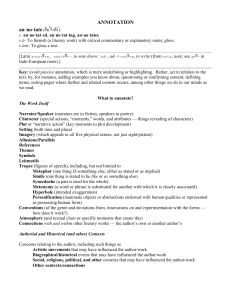what is known about child development and learning
advertisement
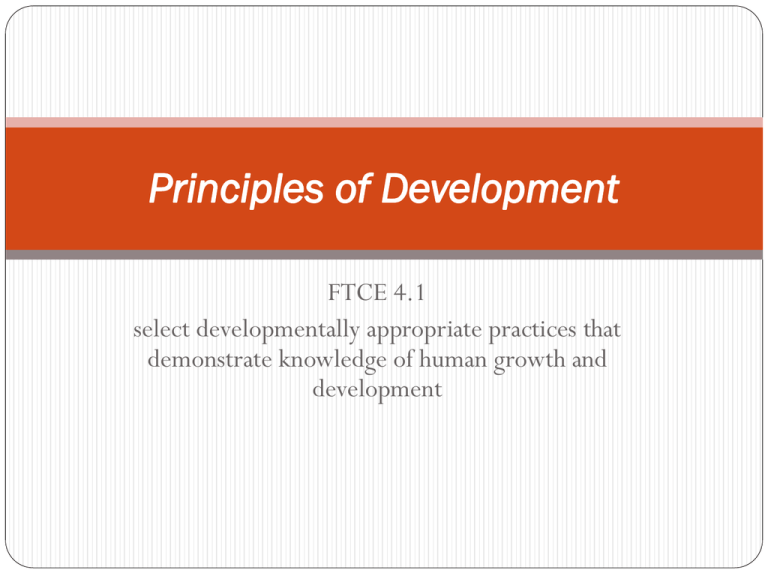
Principles of Development FTCE 4.1 select developmentally appropriate practices that demonstrate knowledge of human growth and development Developmentally appropriate practices result from the process of professionals making decisions about well-being and education of children based on at least three important kinds of information or knowledge 1. What is known about child development 2. What is known about the strengths, interests and needs of each individual child 3. Knowledge of the social and cultural contexts in which children live what is known about child development and learning knowledge of age-related human characteristics permits general predictions within an age range about what activities, materials, interactions, or experiences will be safe, healthy, interesting, achievable, and also challenging to children; what is known about the strengths, interests, and needs of each individual child in the group to be able to adapt for and be responsive to inevitable individual variation; training principle of individual response knowledge of the social and cultural contexts in which children live to ensure that learning experiences are meaningful, relevant, and respectful for the participating children and their families. Domains of children's development are closely related to each other Physical Language Aesthetic Cognitive Emotional Social Development in one domain influences and is influenced by development in other domains. Start here Development 1. 2. 3. 4. 5. occurs in a relatively orderly sequence later abilities, skills, and knowledge building on those already acquired proceeds at varying rates from child to child as well as unevenly within different areas of each child's functioning early experiences have both cumulative and delayed effects on individual children's development i. optimal periods exist for certain types of development and learning proceeds in predictable directions toward greater complexity, organization, and internalization Development and learning occur in and are influenced by multiple social and cultural contexts Children are active learners drawing on direct physical and social experience as well as culturally transmitted knowledge to construct their own understandings of the world around them. Development and learning result from interaction between biological maturation and the environment, which includes both the physical and social worlds that children live in. Play is an important vehicle for children's social, emotional, and cognitive development, as well as a reflection of their development Development advances when children have opportunities to practice newly acquired skills as well as when they experience a challenge just beyond the level of their present mastery Children demonstrate different modes of knowing and learning and different ways of representing what they know Children develop and learn best in the context of a community where they are safe and valued, their physical needs are met, and they feel psychologically secure
